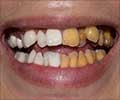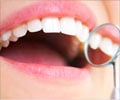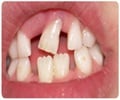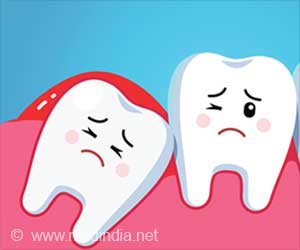A new study has cast doubts on the effectiveness of dental care products, suggesting that polishing treatment might wear down precious tooth enamel and dentin.
A new study has cast doubts on the effectiveness of dental care products, suggesting that polishing treatment might wear down precious tooth enamel and dentin.
The dentists offer professional cleaning services, removing plaque and discoloration with abrasive prophylactic pastes. This renders the tooth surface beautifully smooth, making it difficult for bacteria to get the footing, however this might also grind away precious tooth enamel.So far, scientists lacked measuring techniques to assess tooth abrasion caused by chewing, and effect of toothpastes.
The effectiveness of a prophylactic paste has been measured by how well the granules that it contains are able to smoothen a rough surface.
The test is performed by first roughening tooth enamel or denture materials such as ceramics and titanium to a precisely defined value with an aggressive grinding material but this may not give exact results, as chewing wears out different materials at different rates.
A new measuring method developed by the IWM researchers, a kind of chewing simulation, takes care of this problem.
A team of experts led by Dr. Raimund Jaeger, head of the Biomedical Materials and Implants department, discovered when comparing pastes and subsequently analysing the surfaces, some pastes polish the surface but also unnecessarily ablate the tooth material, producing slight grooves on the tooth surface.
Advertisement
“Obviously, every case is different,” said Jaeger. “Teeth with particularly heavy plaque or discoloration will need a more abrasive paste.” Normally, however, a gentler prophylactic paste will do the job.
Advertisement
SRM








